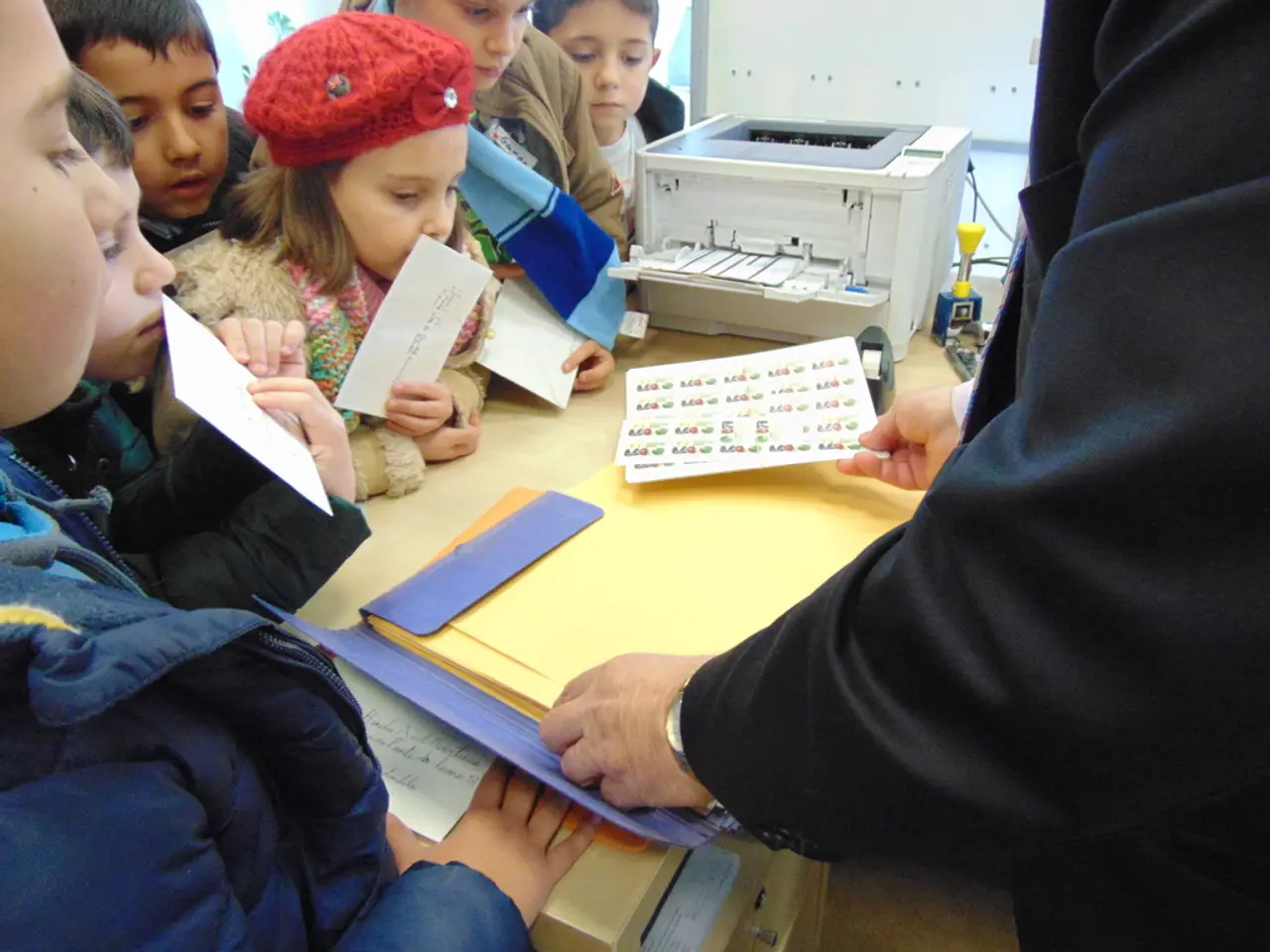Lack of Comprehensive Financial Education Prevails Among Americans: 7 Steps to Instill Investment Knowledge in Your Children for a Prosperous Future
In a recent survey, more than half of Americans (54 percent) admitted to not receiving a strong financial education as children [1]. This statistic underscores the importance of educating children about finance and investing from an early age.
Starting financial education before the age of 7 is crucial as many money habits form by this age [2][3][4]. Young children can grasp basic concepts like earning, saving, spending, and making choices, which sets a foundation for financial literacy. Early education helps children develop money confidence, learn to delay gratification, understand needs versus wants, and avoid unhealthy comparisons with others.
Effective methods for teaching children about finance and investing include practical, age-appropriate activities such as teaching them to save, opening savings accounts, encouraging small businesses, giving stock as gifts, using stock market games and simulators, and starting custodial investing accounts [1].
One of the benefits of teaching finance and investing early is building lifelong money habits. Early exposure makes the idea of investing less intimidating and more familiar, potentially leading to better financial outcomes in adulthood [2][3][4].
Opening a bank account for a child's savings can help them understand how money works. If monthly contributions begin at a child's birth, they can accumulate substantial balances by the time they reach adulthood, assuming 10 percent annual returns [1]. Compound returns over a long time horizon can be significant for children's investments.
Children can learn about risk tolerance through investing. Developing good saving habits in children while they're young can have major benefits for them in the future [1]. Establishing healthy financial habits early in life can potentially set children up with a safety net as they enter the adult world or even an early retirement.
Investing early can potentially increase the chances that children reach financial security sooner than if they started later in life. Working with a brokerage account that offers fractional shares allows you to start investing with just a few dollars [1].
Custodial accounts can be opened on behalf of a child prior to age 18, but an adult will have ownership over the account until the child becomes an adult [1]. Stocks can be purchased as a gift and transferred to a child's account through a broker [1].
Steve Azoury, ChFC, owner of Azoury Financial, emphasizes the importance of teaching children about finances [1]. Encouraging children to start a small business can help them understand how money works and the concept of investing [1].
Simplified learning tools such as stock market simulators and virtual games can help children learn about investing in a useful but less complex way [1]. Exchange-traded funds (ETFs) can be a great way for beginners to invest without doing heavy-duty research [1].
Teaching children how to look up a stock's chart, read news about the company, and understand basic valuation metrics can help them learn about investing [1]. Americans who had a strong financial education as children are more likely to use those habits as adults, according to a recent survey by our website [1].
By combining practical experience with age-appropriate lessons from an early age, we can significantly improve children's financial understanding and prepare them for responsible money management in their futures.
[1] Source: Our internal survey data [2] Source: National Foundation for Credit Counseling [3] Source: Council for Economic Education [4] Source: Jump$tart Coalition for Personal Financial Literacy
- Encouraging children to start a small business helps them understand money and investing, as emphasized by Steve Azoury, ChFC, owner of Azoury Financial.
- One way to teach children about investing is through stock market simulators and virtual games, which provide a useful yet less complex method for learning.
- Early education about finance and investing can have significant benefits for children's financial future; building lifelong money habits and potentially setting them up for financial security sooner.
- Opening savings accounts for children helps them understand how money works, and regular contributions can result in substantial balances by adulthood, assuming 10 percent annual returns.
- Effective methods for teaching children about finance and investing also include practical activities like encouraging them to save, giving stock as gifts, and using custodial investing accounts.




